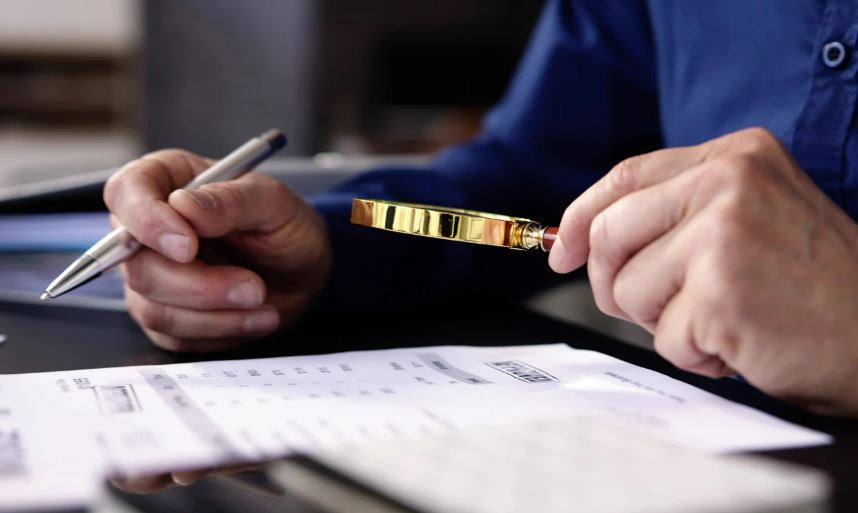Casino Chargeback – Can You Dispute Online Casino Charges?
There are several reasons why someone might try to reclaim money from an online casino — whether due to a technical issue, an unauthorised transaction, or a belief that they’ve been treated unfairly. While some of these claims may be unlikely to succeed, others could be based on legitimate concerns.
In this article, we’ll take a closer look at casino chargebacks: what they are, when they might apply, and whether it’s actually possible to dispute charges made by an online casino. Read on to learn more.
What Is a Casino Chargeback?
Before looking more closely at how casino chargebacks work, it’s important to understand what a chargeback actually is. In simple terms, a chargeback is a form of consumer protection offered by banks designed to help customers recover funds from transactions that are unauthorised, fraudulent, or linked to goods or services that weren’t delivered as expected. It acts as a financial safety net, allowing you to request a reversal of payment when something goes wrong.
In the context of online casinos, this applies when a player makes a deposit using their bank card or other payment method. These deposits are treated like any other purchase. If you have made a deposit at an online casino and believe the casino has acted unfairly or engaged in misleading or inappropriate behaviour, a chargeback may be an option to dispute the transaction and potentially recover your money.
Can You Dispute Online Casino Charges?
Is it possible to successfully dispute charges from an online casino? In short, yes — but it’s not always a straightforward process. Whether a chargeback is approved depends on several factors, including the nature of the transaction and your bank’s specific policies.
It’s important to understand that not all losses at an online casino qualify for a chargeback. Simply being unhappy about losing money isn’t a valid reason to dispute a charge. To stand a chance, there needs to be a genuine issue behind the transaction. Some situations where a chargeback might be considered include:
- Unfair Practices: If you believe the casino has acted unethically — for example, by using rigged software or failing to clearly disclose important terms and conditions — and you have some form of supporting evidence, you may have grounds to dispute the charge.
- Unauthorised Transactions: If you notice payments on your account that you didn’t approve, it’s essential to contact your bank straight away. They’ll typically investigate the claim to determine whether the transactions were indeed unauthorised.
- Double Billing: Occasionally, technical errors can result in being charged more than once for the same deposit. In these cases, a chargeback can be used to recover the duplicate payment.
Keep in mind that chargebacks aren’t guaranteed and depend on various factors — including your bank’s procedures, the strength of your evidence, and how quickly you raise the issue.
To improve your chances of success, you’ll need to present a clear and well-documented case. This could include screenshots, email correspondence with the casino, transaction records, and any other relevant information. The stronger and more organised your evidence, the more likely it is that your bank will rule in your favour.
Chargeback Fraud: When Not To Dispute Charges
While chargebacks can offer a useful safety net in certain situations, there’s also the potential for misuse — commonly referred to as chargeback fraud. This occurs when someone tries to recover money through a chargeback without a valid reason, often by making a dishonest claim. If you’re considering raising a dispute, it’s important to be aware of what constitutes a legitimate case and where the line is drawn.
A genuine chargeback is usually made in good faith—for instance, if you didn’t authorise a payment or believe the casino failed to deliver on its terms. However, if you were to submit a dispute with the intent to deceive, you could be committing chargeback fraud. This can result in serious consequences, including having your account suspended or even facing legal action.
Here are a few situations where raising a chargeback would typically not be appropriate:
- If you simply lost money gambling: If you’ve had a losing streak or didn’t get the outcome you were hoping for, that alone wouldn’t be grounds for a chargeback. Gambling carries the inherent chance of losing, and that’s not something your bank is likely to consider a valid dispute.
- If you’ve broken the casino’s rules: For example, if you’ve opened multiple accounts against the casino’s terms and conditions, any chargeback claim you make could be dismissed. It’s important to make sure you’ve followed all the rules before considering a dispute.
- If you haven’t tried resolving the issue with the casino first: In most cases, your bank will expect you to have attempted to sort things out directly with the casino. That might mean contacting customer support or, if needed, raising the issue with the relevant gambling authority.
If you’re thinking about disputing a transaction, the key is to act honestly and responsibly. Submitting a claim without a valid reason not only reduces the chance of success—it could also lead to more serious consequences.
Play Slots & Online Casino Games
Do Banks Investigate Chargebacks?
Yes, banks do take chargebacks seriously and will usually carry out a detailed investigation to determine whether your claim is valid. If you decide to dispute a transaction, you can expect your bank to review the situation carefully, considering evidence from both you and the merchant—in this case, the online casino. The aim is to make a fair and impartial decision based on the facts.

If you submit a chargeback, the responsibility to prove your case typically falls on you as the cardholder. This means you’ll need to provide clear and convincing evidence to show that something went wrong with the transaction. That might include screenshots, correspondence with the casino, or documentation showing misleading terms or unauthorised activity. The stronger your evidence, the better your chances of a successful outcome.
At the same time, the online casino will also have the chance to respond. They may supply their own records—such as your gameplay history or confirmation that you agreed to their terms and conditions—in an effort to challenge your claim.
Your bank will then assess the information from both sides before coming to a decision. While the process can take some time, it’s designed to ensure that each case is judged fairly and on its individual merits.
Can You Ever Get Your Money Back From a Casino?
When it comes to online gambling, nothing is ever guaranteed—and that includes the outcome of a chargeback. If you believe a transaction was handled unfairly or something went wrong, you may be able to request a chargeback through your bank. However, whether or not you succeed will depend on the details of your case and the strength of the evidence you provide.
Your chances of a successful chargeback are higher if you can clearly demonstrate a valid issue—such as unauthorised charges, double billing, or potentially unethical behaviour by the casino. Being able to support your claim with solid evidence, like screenshots, email correspondence, or transaction records, is essential.
Before you consider a chargeback, it’s usually worth contacting the casino’s customer support team to try to resolve the issue directly. Many problems can be addressed this way without needing to involve your bank.
While there’s no certainty that you’ll get your money back, if you have a legitimate concern and take the right steps, there may be a pathway to recovering your funds.
Conclusion
If you believe you’ve been treated unfairly by an online casino, raising a chargeback can be a legitimate option to consider. That said, it’s not a guaranteed route to getting your money back—the outcome will depend on the specifics of your situation and the evidence you’re able to provide.
It’s important to approach the process with honesty and transparency. Submitting a claim without valid grounds could be seen as fraudulent and may lead to serious consequences. A chargeback should be viewed as a last resort, ideally pursued only after you’ve made reasonable efforts to resolve the issue directly with the casino.
With the right approach and a genuine claim, a chargeback might offer a way to recover your funds—but it’s essential to understand the responsibilities involved.
**The information provided in this blog is intended for educational purposes and should not be construed as betting advice or a guarantee of success. Always gamble responsibly.





























































